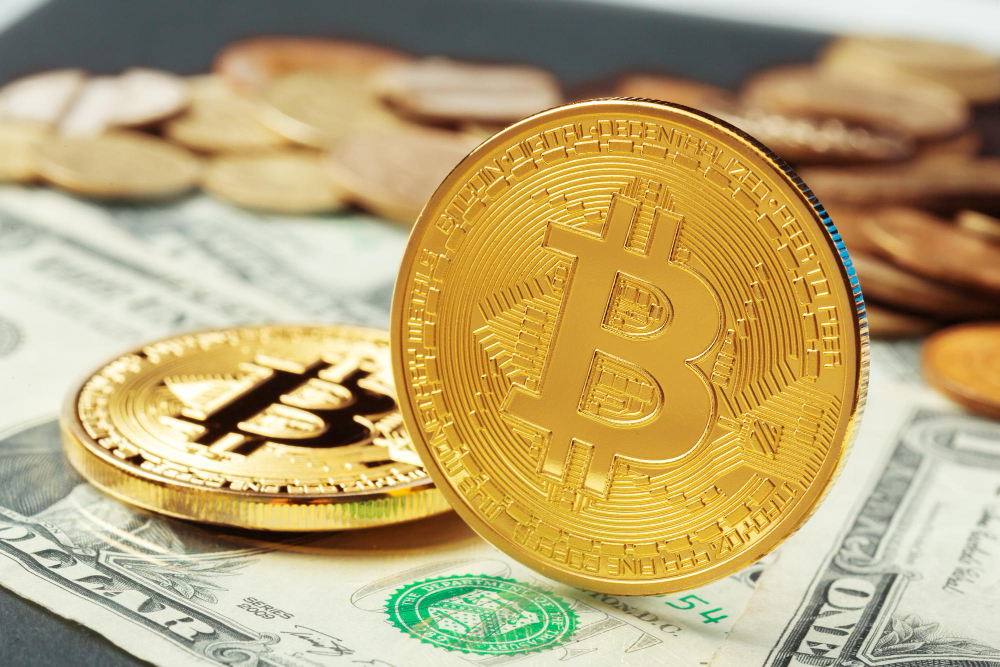
Bitcoin and Digital Dollars: What's the Future of Money?
Do you know that you can buy and pay for certain goods and services without using your conventional fiat currency? Today, the need for physical money is getting slimmer with technologies like mobile money and digital currency. But what's the implication for the future of money? Trading crypto has never been this easy with automated trading platform Bit Alpha AI
History of Money
Before answering the question, let's go back a bit. Before we had printed money, people still traded. Barter trade meant that people exchanged items of similar value. For example, if you wanted corn but had beans, you would look for someone who needed beans and exchange the items based on the estimated value of each. Then, you would give them beans for your maize. Money was nonexistent.
Then came fiat money which simplified transactions. You don't need to find someone who needs beans to get maize when you have the US dollars. You only need to pay the amount of money you agree to obtain the commodity you want. Now, we have digital currencies like Bitcoin, Ethereum, and the prospect of the digital dollar.
Bitcoin and Digital Currency
We now have many cryptocurrencies. Bitcoin is the most popular, with over a hundred million users globally. Millions of users are now using these cryptocurrencies. Their growing popularity has attracted positive and negative reactions. Many governments have attempted to ban or regulate them but with little success.
In 2021, China banned all cryptocurrencies, including Bitcoin. However, it created its digital currency, the digital Yuan. And this only shows that digital currency is here to stay despite efforts to ban or regulate them. Even the US Fed has considered creating a digital dollar. The idea behind such government efforts is to create digital currencies similar to cryptocurrencies that they control and regulate.
Cryptocurrencies like Bitcoin have extra benefits compared to conventional fiat currency. First, the blockchain technology that underpins Bitcoin ensures that government, banks, credit card companies, and other intermediaries are out of the financial system. And this makes it much cheaper to transact and make remittances because there are no fees that these intermediaries charge.
Second, Bitcoin and digital currency expand financial inclusivity. Many people cannot have bank accounts or access financial services like loans because of the existing conditions. However, anyone can use cryptocurrency irrespective of whether they have the correct papers. And this makes these new virtual currencies more attractive to users.
Third, with Bitcoin and digital currency, you can use them both as digital money or digital assets.
The Future of Money
When considering the future of money, we have to consider all possibilities. One of the possibilities is that Bitcoin and other digital currencies will grow in usage. More people and institutions will embrace these new digital currencies because of their benefits. Moreover, more governments will accept Bitcoin as legal tender—those who will not are likely to develop their digital currencies like the digital dollar.
Another possibility is that fiat currencies will become less relevant. With their disadvantages, including inflation risk, conventional fiat currencies will become less convenient for transacting. People will also have more alternatives in the many cryptocurrencies and digital currencies available.
Conclusion
Cryptocurrencies like Bitcoin and digital currencies like the digital dollar will become more relevant than conventional fiat currency. These digital currencies provide greater convenience and benefits to everyone. However, we are likely to see more regulations by governments.
CCP Marketing
Legal Disclaimer:
MENAFN provides the
information “as is” without warranty of any kind. We do not accept
any responsibility or liability for the accuracy, content, images,
videos, licenses, completeness, legality, or reliability of the information
contained in this article. If you have any complaints or copyright
issues related to this article, kindly contact the provider above.


















Comments
No comment